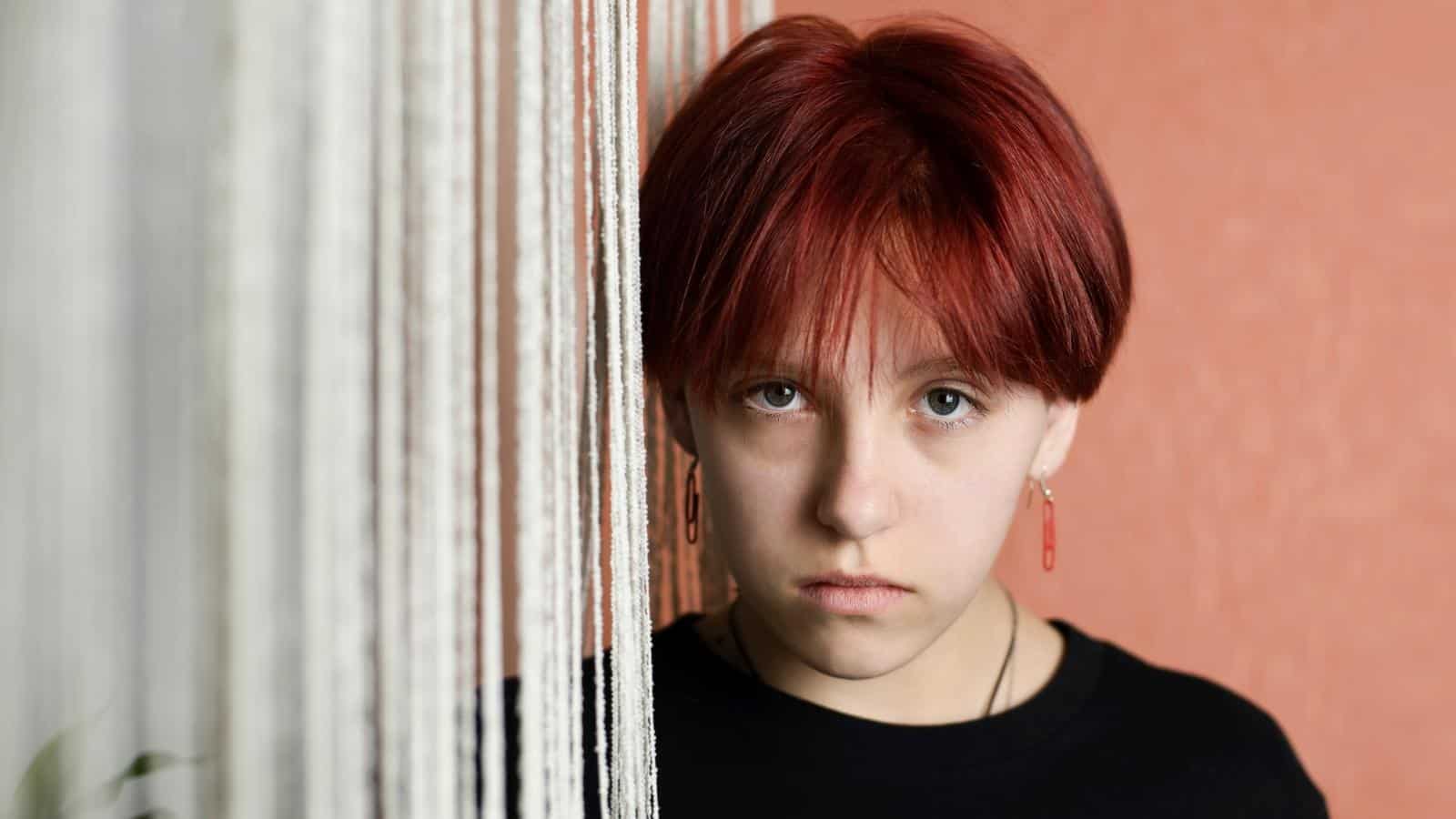Adverse Childhood Experiences (ACEs), or childhood trauma, as we’ll ordinarily call it, can be daunting for anyone. If you’re wondering whether you or someone you care for may be suffering from its effects, these 18 signs tell you all you need to know.
Trust Issues

When parents, guardians, siblings, or friends who you think have your best interest at heart cause you the most heartbreak, trust issues arise. Someone who has experienced childhood trauma doesn’t believe that anyone has good intentions toward them, and getting them to lay their guard down is one of the steepest uphill battles.
Specific Phobia

One common symptom of a traumatic childhood is an intense fear of a specific item or experience. Of course, this will be a fear of what caused the trauma, such as nyctophobia from being constantly locked in a dark room or acrophobia from falling from a high place.
Always Develops New Fears

People with childhood trauma may also develop a random fear of things that can be dangerous, especially if the trauma was physical. They are afraid they may relive a bad experience, and, hence, they get very apprehensive about a lot of things and actions. This fear doesn’t even have to relate to what caused the childhood trauma.
Depression

Alongside research from Science Direct, multiple studies have linked childhood trauma and childhood maltreatment to depressive disorders. You may see anyone with childhood trauma harbor feelings of hopelessness and engage in self-harm—the extreme cases of which lead to suicidal thoughts.
Irregular Emotions

When childhood trauma has an emotional origin, there will be difficulty controlling emotions. You may experience manic outbursts, sudden waves of sadness and seclusion, or even an inability to express emotions, both good and bad. In the more severe cases, they may also develop bipolar disorders featuring intense mood swings, as PubMed shares.
Easy Irritability

There may also be a feeling of frustration hovering around that always keeps them at the tipping point. Anger is not far away from them, and a slight inconvenience may lead to a long session of nagging. Even a joke from a friend can cause aggressive, violent behavior.
Substance Abuse

Whether it be alcohol, smoking, or hard drugs, these people also fall deep into substance use. It’s what they use to cope with their ever-present state of unrest, stress, and uncontrollable emotions. There’s even more from NIH. “Adults with any history of ACEs have a 4.3-fold higher likelihood of developing a substance use disorder.”
Social Anxiety

ACEs are also known to cause anxiety and panic disorders in adulthood. This is usually a side effect of childhood environments where there wasn’t any stability but, instead, there was always a feeling that something bad would happen—and it did.
No Interest in Pleasure

They may also have no interest in things that bring others pleasure, such as playing video games, going to the movies, or reading books. This may manifest in the form of severe social withdrawal, where they may prefer seclusion due to the anxiety and insecurity that come from dealing with others.
Physical Illness

A constant state of stress and anxiety results in mild physical conditions like headaches and stomach pain. However, disastrous habits like the overconsumption of alcohol or substance overdose may cause more adverse health conditions, such as high blood pressure, liver problems, and heart disease.
Flashbacks

If someone constantly recalls a memory from childhood that causes shudders, then they still have unresolved trauma to deal with. Sometimes, these memories can manifest in the form of constant nightmares or be vivid enough to cause a panic attack.
Sleep Disorders

People with childhood trauma are also known to have difficulty sleeping. Some sleep-related signs they may be experiencing include nightmare-related stress, unnatural sleeping routines, or an intense insomnia disorder. They may also experience sleep apnea, where their breath stops while they’re asleep.
Reckless Behavior

Some people may also engage in dangerous behaviors like driving too fast or engaging in vandalism. It can be a way to overcompensate for anxieties or to get that rush of dopamine to escape constant emotional pain. As shared by Bloomberg, it may also be a trauma-induced inability to assess risks.
Poor Sexual Life

There is also substantial dysfunction in the sexual lives of people with childhood trauma. Reporting on a study on 1,500 women, the Mayo Clinic notes that “women with four or more adverse childhood experiences were nearly twice as likely to be sexually inactive compared to women with no exposure to childhood adversity and were two times more likely to have sexual dysfunction in midlife.”
Extreme Self-Criticism

They may also have intense self-esteem issues where they feel like they’re never enough: this may manifest in a constant downplay of achievements, self-sabotaging opportunities, or the more scary cases of self-harm. It’s from this that perfectionist personalities also spring out.
Hypervigilance

People who had to watch their backs a lot during childhood also become hypervigilant—staying alert at all times and looking for the slightest signal of a pending disaster. Physical trauma from abuse or mental trauma from war or natural disasters are the typical triggers for this.
Attachment Issues

There may be the presence of either one of three attachment issues. These are avoidant attachment, anxious attachment, and disorganized attachment, as WebMD shares. Either you don’t get close to the people you love, get too close and overdepend on them, or experience an uncomfortable mixture of these.
Anxiety With Interpersonal Relationships

A culmination of all these factors results in a person whose behavior doesn’t fit or function well with others. There are always trust issues, unmanageable/intolerable outbursts, and habits that cause rifts between people they get close to. Seeking therapy can help them get the right help to regain a healthy social life.
Read More: People Who Had Unhappy Childhoods Usually Develop These 18 Traits

People who go through a lot of traumatic experiences while they’re young can find themselves developing traits that stay with them through adulthood. What are these traits? You’ll find 18 of them in this article.
People Who Had Unhappy Childhoods Usually Develop These 18 Traits
17 of the Most Dangerous Cities in the World (6 Are in The US)

Every city has its dangers, but it goes without saying that some places are far more dangerous than others. We’ve compiled a list of 17 of the most dangerous cities in the world in terms of violent crime and homicide rates.
17 of the Most Dangerous Cities in the World (6 Are in The US)
18 Reasons Why No One Is Interested in Working Anymore

The concept of traditional employment has taken a back seat in recent times with changes in economic and social factors, as well as individual preferences. Traditional jobs have also evolved, and many people don’t feel the need to take this route anymore. These are 18 reasons why no one is interested in working anymore.
18 Reasons Why No One Is Interested in Working Anymore
17 Most Friendly Wild Animals in the World

Are you an animal lover looking to learn more about the curious creatures that inhabit our planet alongside us? Discover the amicable side of the animal kingdom. Meet 17 of the world’s most sociable wild animals, from playful sea creatures to gentle land mammals.
17 Most Friendly Wild Animals in the World
17 Phrases Confident People Use to Stand Up For Themselves

Confidence is a healthy and attractive trait that helps us stand firm in our values and set healthy boundaries. We can always become more confident, and learning the right ways to stand up for yourself is a great way to start. Here are 17 phrases you can use to do so.

